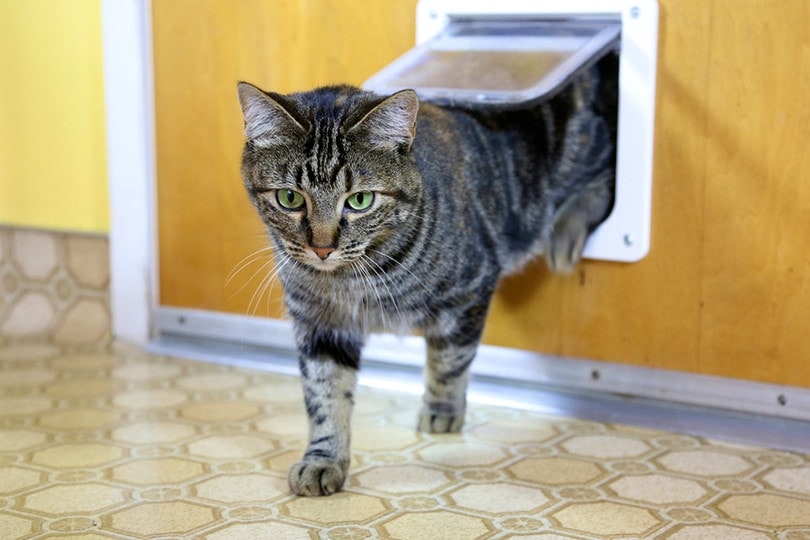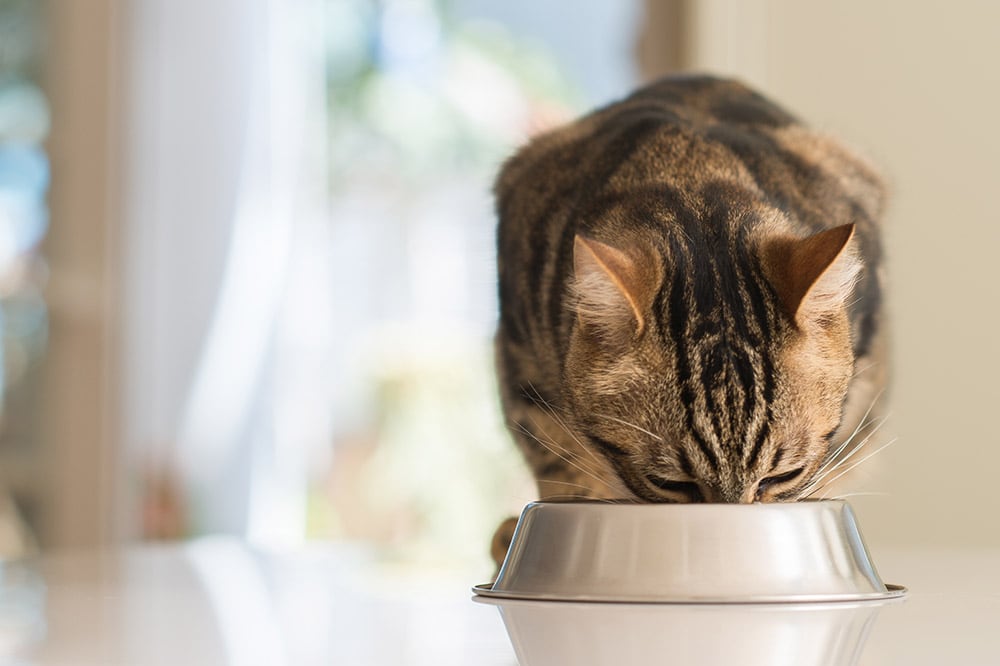How to Calm a Cat During Fireworks: 8 Vet-Approved Tips
By Kit Copson
Updated on
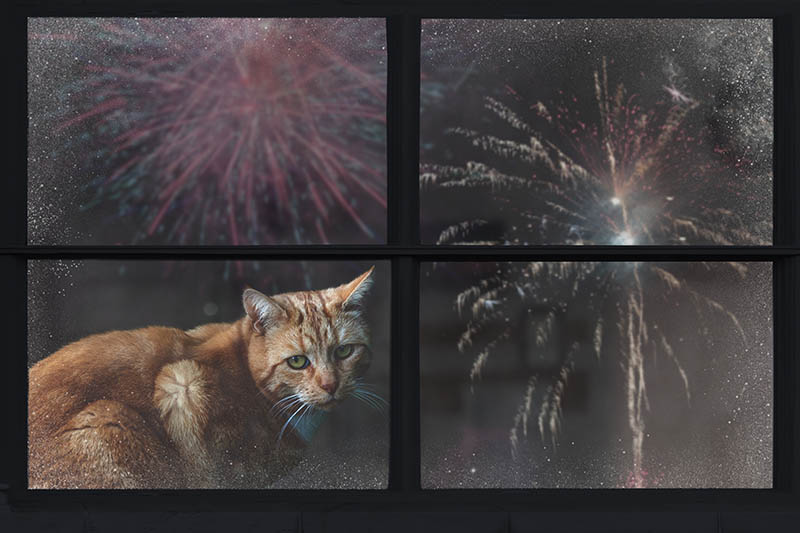
On festive occasions, there are two types of cats—ones that snooze and snore their way through the sound of fireworks completely dead to the world and ones that get frightened or anxious (here at Hepper, we’ve got both varieties).
Cats have excellent hearing, which makes them especially sensitive to loud noises, and this is why some cats get super stressed out when fireworks are going off, even if they’re quite a distance away.
It’s highly recommended to prepare for occasions when fireworks might go off so that you’re ready to soothe your cat when it happens. Check out these top tips on how to calm your cat down during fireworks.
How to Calm a Cat During Fireworks
1. Keep Your Cat Indoors
If you’re anticipating a nearby fireworks display any time soon, please be sure to keep your cat indoors. This helps them to feel more secure than if they’re outside and suddenly loud and frightening noises start to go off. It also keeps them closer to you—the person they feel safe with.
Our motto when it comes to our fur babies is always “better safe than sorry”. Be sure to keep all windows, doors, or any other potential escape routes firmly shut. A frightened cat may dart for the door or try to squeeze themself out of a window in panic. It’s also a good idea to make sure your cat’s microchip information is up to date in case they do manage to escape.
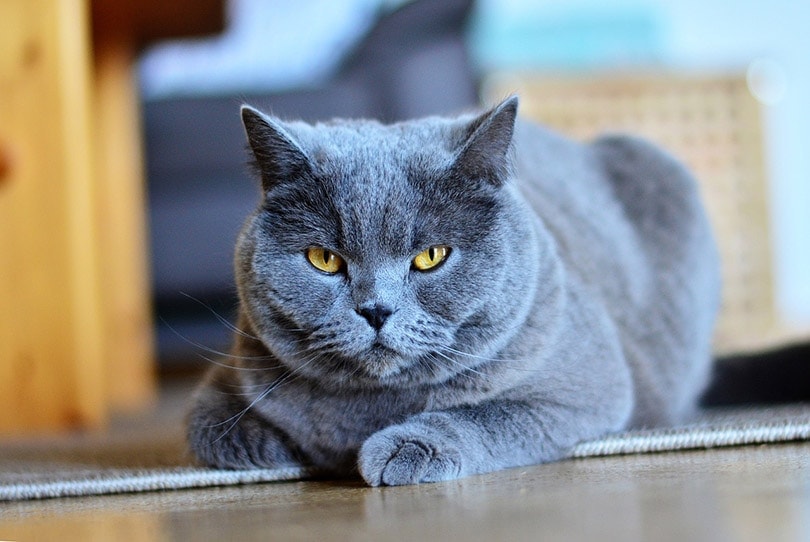
2. Create a Hideout
If there’s something every cat needs—firework night or no firework night—it’s a dark, cozy space (ideally up high somewhere) that they can retreat to and feel safe. This is why cat condos, cat trees, and cardboard boxes with soft blankets inside are so commonly found in cat parents’ homes. Some cats prefer to hide down low, so ideally, having several cozy spots in different places will give your cat the option to choose.
Be sure to also keep curtains closed to reduce the risk of bright lights from the fireworks upsetting your cat further.
3. Keep Yourself Calm
It’s best to avoid making too much of a fuss about your cat during fireworks, even though it’s natural to want to actively soothe and comfort them. Just try to behave as normally as possible, and this may show your cat that there’s nothing unusual and nothing to be afraid of. It’s also not a good idea to pick up and try to cuddle a frightened cat, as this can exacerbate their stress.
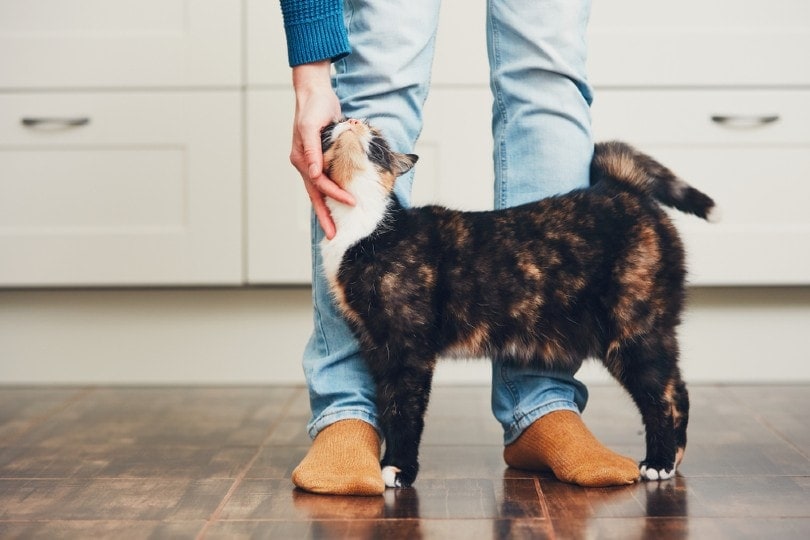
4. Licking
The act of licking is soothing for your cat and can help release calming hormones. You can offer a favorite soft food snack that they can lick up as a calming treat. Another option is to use a LickiMat to prolong the enjoyment.
5. Soothing Touch
If your cat is comfortable to be beside you during the fireworks then stroking them in ways that they enjoy will help to calm them. Do they enjoy chin rubs, long flowing strokes, or a good scratch at the top of their tail? Whatever their favorite is, indulge them.
Some cats very much enjoy being groomed so this can be a good time to bring out the brushes for cats that find it soothing.
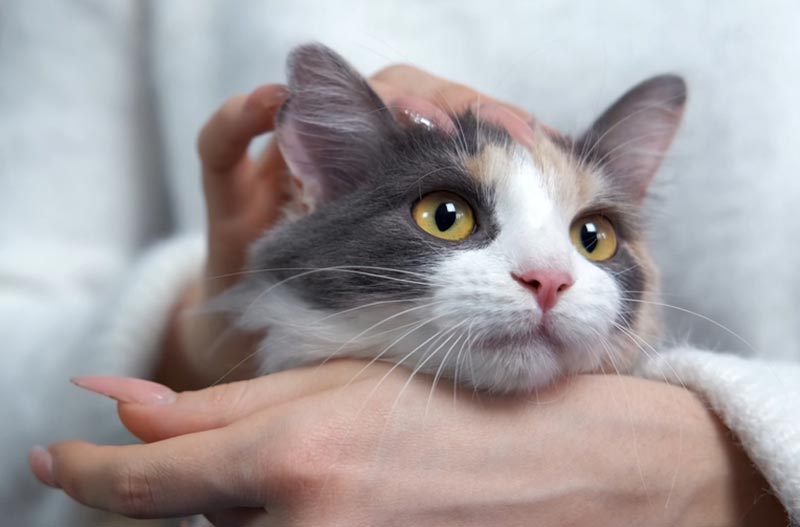
6. Play Music
Try putting on the radio, TV, or some soft music during fireworks. This may help distract from the booming sounds outside. You can even find Spotify playlists dedicated to stressed and anxious cats!
7. Distraction
It may not work for very anxious cats but engaging in some distracting play time may help to reduce the effect of the fireworks for others. A game with a teaser stick, favorite ball, cuddly or laser toy may be enough to keep them occupied for a while during the firework display.
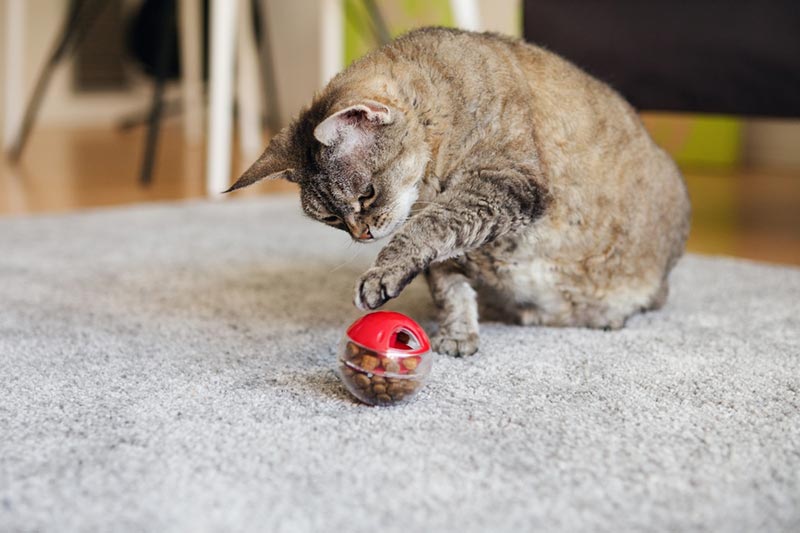
8. Try Pheromone Plug-Ins
According to Dr. Valarie Tynes, DVM, pheromones help reduce anxiety in cats and dogs. You can find several pheromone products—including pheromone plug-ins, collars, or diffusers—that may comfort your cat during stressful periods. Just be aware that you’ll need to pick one specifically for cats, as plug-ins designed for dogs won’t work on cats. They should be started before the anticipated stressor ideally a week or two in advance and continued while there is any risk of fireworks.
FAQ
Can Fireworks Traumatize a Cat?
Fireworks can cause significant stress and anxiety in cats, which can be very traumatic for them. In some cases, the stress of loud noises can trigger seizures, and cats sometimes become injured due to panic escape attempts. Cats with a history of abuse, neglect, or other kinds of trauma are especially prone to firework-induced panic and anxiety.
What Are the Signs of “Fireworks Fear”?
If your cat is feeling anxious when fireworks are going off, it will be pretty easy to tell. Signs include pacing, hiding, withdrawing, loss of appetite, restlessness, dilated pupils, freezing, circling, growling, vocalizing, and arching their back with their fur standing on end.
Conclusion
To reiterate, if you’re a cat parent and anticipate an upcoming event involving fireworks near your home, preparation can make all the difference. Keeping your cat indoors in a safe and comfortable environment with a great hiding spot is the best way to keep them calm during fireworks.
If you’re concerned about how anxious your cat gets due to fireworks or other loud noises, please consult your vet or a cat behaviorist for advice.
Featured Image Credit to: Vincent Scherer, Shutterstock


